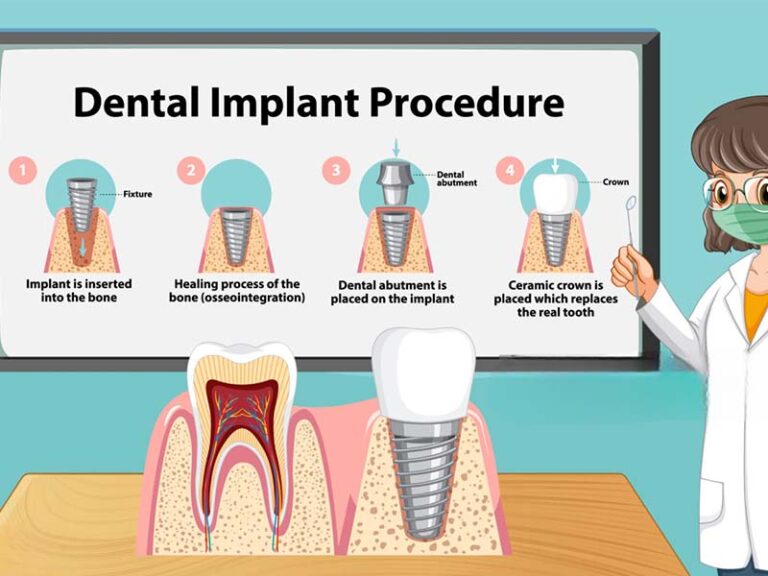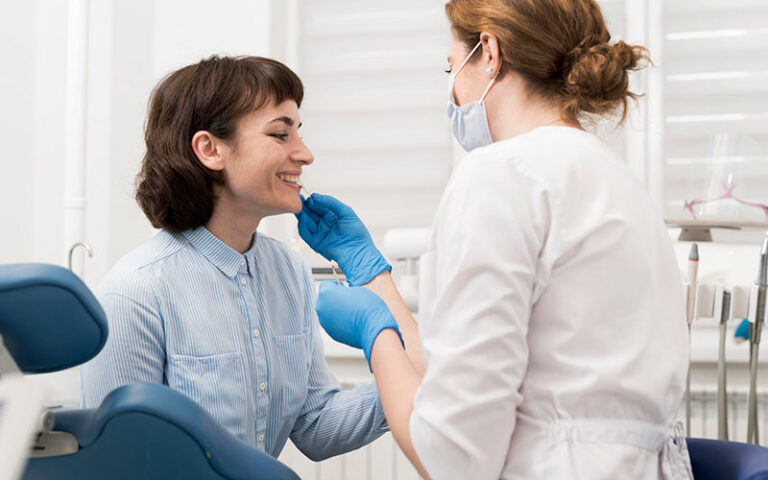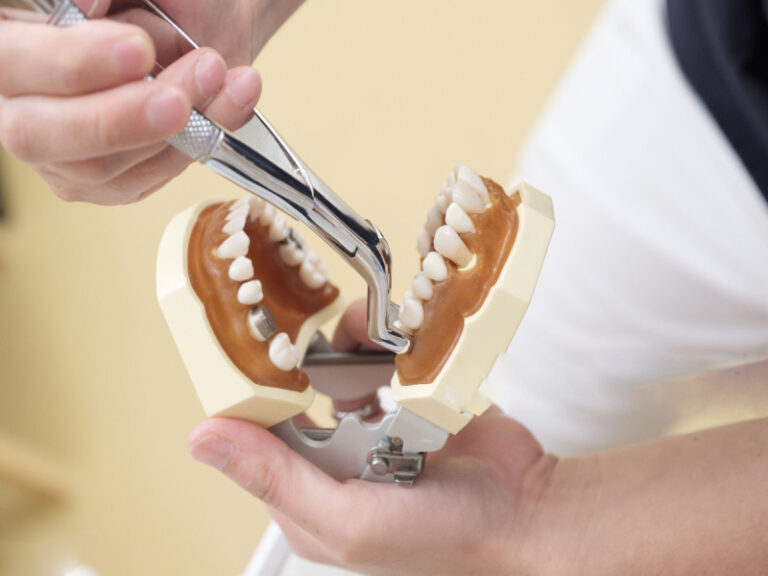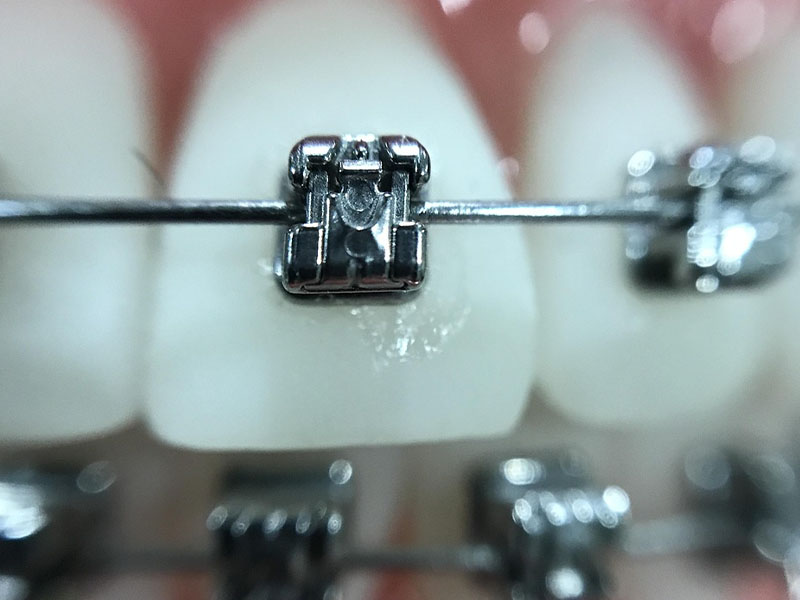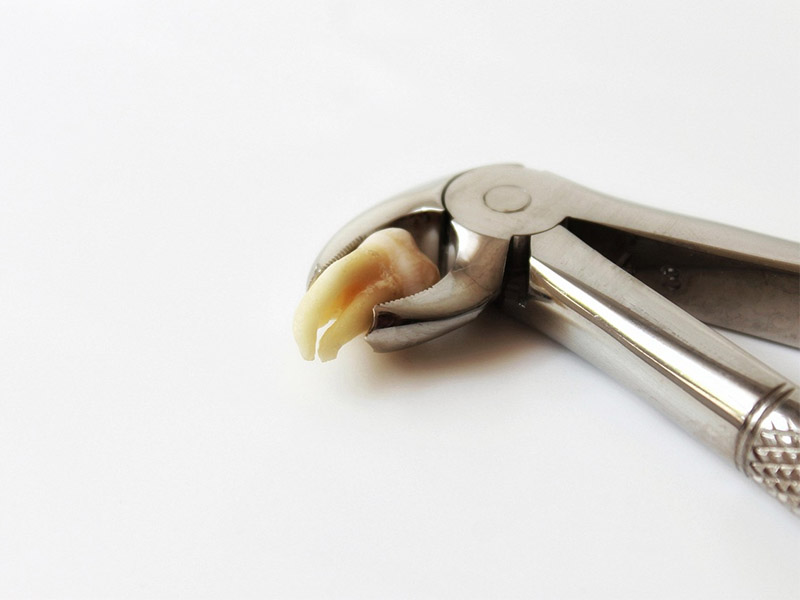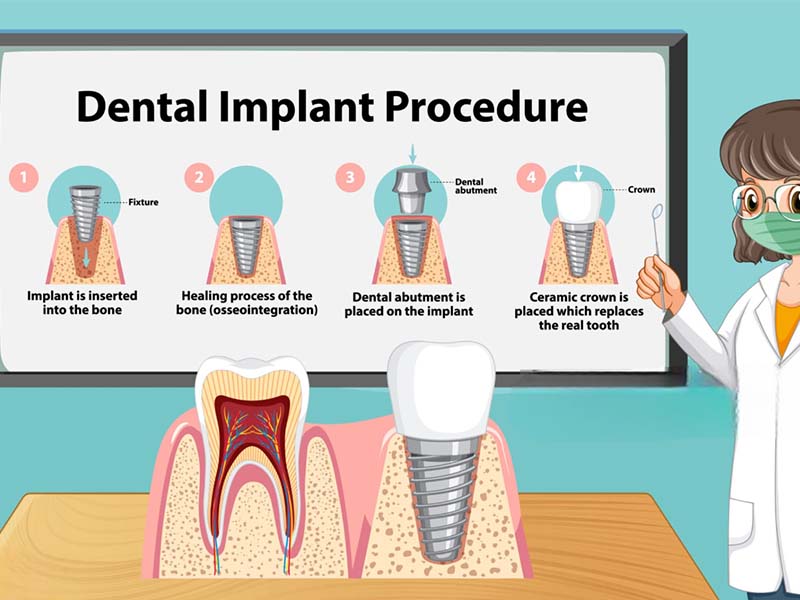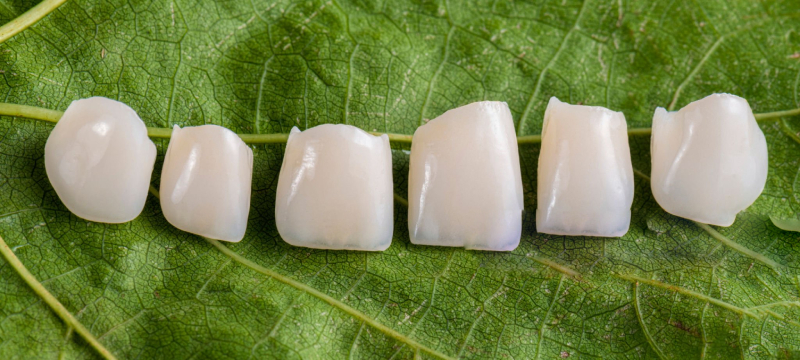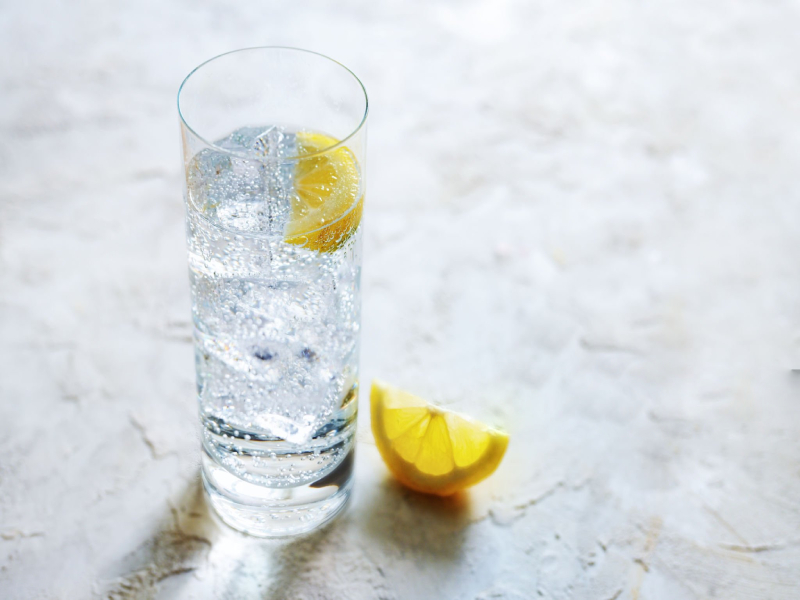
Искрящата вода вредна ли е за вашите зъби? Изненадващата истина
People want to know the truth about sparkling water. Is it secretly hurting our teeth? Is this fizzy drink just as bad as soda? You may have heard that fizzy water can be bad for your teeth, and you want to know if this popular drink is secretly a problem.
In this article, I’m going to cut through the confusion. We will look at the facts. We will explore what science and dentistry say. I’ll share what you need to know to enjoy your fizzy drink without worry. This guide will give you clear answers and simple tips to protect your smile. You will learn everything you need to know the truth about sparkling water and your oral health.
Съдържание
What Exactly Is In My Sparkling Water?
What is this stuff? It’s simpler than you might think. Sparkling water is just regular water with a gas added to it. The gas is called carbon dioxide. This process is called carbonation, and it’s what gives the beverage its fun fizz.
Think of it this way. You have pure, simple water. Then, bubbles of carbon dioxide gas are forced into it. That’s it. Plain sparkling water has no sugar, no calories, and no artificial flavors. It’s just water with a tingle. This is very different from other drinks that have a long list of ingredients I can’t even pronounce correctly.
Is the Fizz in Sparkling Water a Problem for Teeth?
This is where the concern begins. When you add carbon dioxide to water, a chemical reaction happens. It creates carbonic acid. The word “acid” can sound scary, especially when we are talking about teeth. This is because any acid can be a problem for your smile.
Plain water has a neutral pH level. A neutral pH is 7. Because sparkling water contains carbonic acid, it is slightly more acidic. This gives it a lower pH level, usually a pH of around 5 to 6. An acid with a pH below 5.5 has a higher chance to weaken tooth enamel. So, the fizz itself does make the water a little bit acidic.
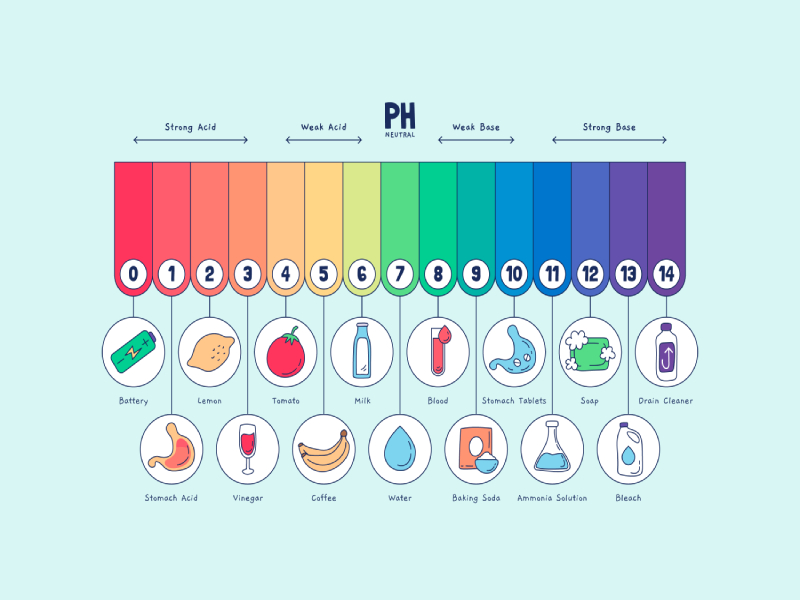
How Does Sparkling Water Compare to Soda?
The difference between the two is huge. While sparkling water is slightly more acidic than regular water, soda is in a different league of danger for your teeth. Most colas and sports drinks have a pH of 2.5 to 3.5. That is much, much more acidic than even the fizziest sparkling water.
On top of the high acidity, soda is full of added sugar. This sugar feeds the bad bacteria in your mouth, which leads to cavity formation and tooth decay. Sparkling water is far less of a threat. Studies show that sparkling water is less harmful to your teeth than sugary drinks. If you are choosing between a sugary beverage and a sparkling water, the choice for your dental health is clear.
Can Sparkling Water Really Damage My Tooth Enamel?
This is the big question. Can this drink actually erode tooth enamel? Your tooth enamel is the hard outer shell of your teeth. It’s the strongest substance in your body, but it can be damaged by acid. This damage is called erosion. The acid in any beverage has the potential to wear away your enamel over time.
So, yes, the carbonic acid in sparkling water can cause a tiny amount of damage to your enamel. However, the key here is how much and how often. For most people, drinking it in moderation is not a major concern. The risk of enamel erosion is very low compared to other drinks like fruit juice or any sugar-sweetened beverage. The simple truth about sparkling water is that it is not a major threat on its own.
What Does Modern Dentistry Say About Sparkling Water?
Let’s look at what the American Dental Association and other dentistry professionals say. The general view is that plain sparkling water is a good choice for hydration. It is much better for your teeth than sugary drinks.
One study looked at the effect on tooth enamel compared to other drinks. It found that carbonated water had a very low power to erode teeth. The study found that the risk was only slightly higher than for plain water. Another study showed that you would have to drink a huge amount of sparkling water over a long time to see any real damage. The expert advice is clear: sparkling water bad is mostly a myth when compared to real dental dangers.
Are Some Kinds of Sparkling Water Worse Than Others?
This is a very important point. Not all sparkling water is created equal. The problem comes when companies add things to their water. Watch out for citrus flavors like lemon, lime, or grapefruit. These added flavors can increase the acidity of the beverage and make it more likely to harm your tooth enamel. For example, a bottle of Perrier with lemon flavor can have a pH as low as 5.25.
The biggest danger is when sparkling water brands add sugar. Some fizzy drinks on the shelf contain sugar, and these are no better than soda. Always read the label. If you see sugar or high-fructose corn syrup, put it back. This is a special concern in pediatric dentistry, as children’s teeth are very vulnerable to sugary drinks. Choose plain sparkling water or brands that are truly sugar-free.
So, Should I Stop Drinking Sparkling Water?
After looking at all the evidence, my answer is no. You most likely do not need to stop if you enjoy it. For your overall health, staying hydrated is key. If a bubbly beverage helps you drink more water, that’s a good thing. It is much better for your teeth than reaching for a soda or energy drink.
The fear that water bad for your teeth in its fizzy form is mostly overblown. The risk is small and manageable. You just need to be smart about how you drink sparkling water. Think of it as a treat, not as a complete replacement for regular water. Balance is the key to good oral health.
What’s the Smartest Way to Drink Sparkling Water?
You can enjoy sparkling water and protect your smile by following these tips. First, don’t sip it all day long. When a drink is consumed often and in large amounts, it keeps your teeth in an acidic state. This can increase the risk of erosion. It’s better to drink it with a meal. The food helps produce saliva, which neutralizes the acid.
Another great tip is to use a straw. A straw helps the sparkling water bypass your teeth, reducing contact with the acid. After you finish, rinse your mouth with plain water. This washes away any leftover acid. Finally, wait at least 30 minutes before brushing your teeth. Brushing right after an acidic drink can scrub away the softened outer shell of your teeth.
Why Is Plain Water Still the Best Drink for My Teeth?
Plain water is always the champion for your smile. It is the best beverage for your teeth, without a doubt. It has a neutral pH of 7, so it does not harm your tooth enamel. It also helps your mouth produce saliva, which is your body’s natural defense against tooth decay.
If you drink tap water, you may get the benefit of fluoride. Fluoridated water is a public health success story. Water with fluoride naturally helps strengthen teeth and fight cavities. Water also washes away the leftover food particles that leftover food cavity-causing bacteria feast on. It keeps your mouth from becoming dry, which reduces your risk of developing cavities and gum disease.
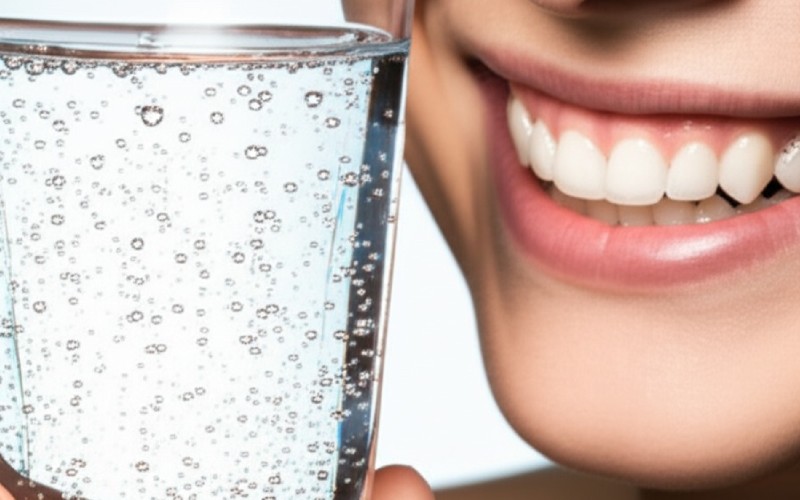
What Should I Do If I’m Worried About My Teeth?
If you have concerns about your teeth or gum health, the best thing to do is talk to a professional. Your dental team can look for early signs of enamel erosion. They can give you expert advice based on your personal health. They might recommend using a fluoride toothpaste or a special rinse to help protect your teeth.
Remember, your dentist and hygienist are your partners in maintaining great oral health. Don’t be afraid to ask them questions, even if you think they are silly. Asking “is sparkling water bad for your teeth?” is a great way to start a conversation about your habits and how to best care for your smile for years to come.
Key Takeaways to Remember:
- Plain sparkling water is only slightly acidic and is a much better choice for your teeth than soda or sugary juices.
- The real danger comes from sparkling waters with added sugar or citrus-flavored acids, which greatly increase the risk of erosion.
- Drink sparkling water in one sitting, preferably with a meal, instead of sipping it all day long.
- Rinse your mouth with plain water after drinking to wash away the acid. Wait 30 minutes before brushing.
- Plain water, especially fluoridated water, remains the best beverage for your dental health because it cleans your mouth and strengthens teeth.
- If you are worried about your teeth, see your dental professional for advice.

